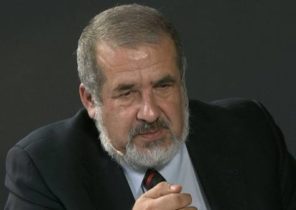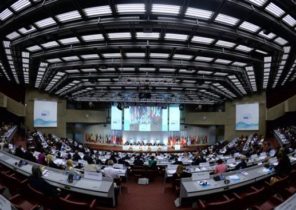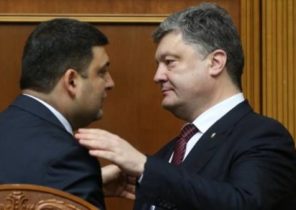
Response to Russian intervention in the American presidential elections take different forms. Besides the fact that now the investigation of the campaign of trump, the U.S. Senate still United in the opinion that it is necessary to tighten sanctions against Russia.
Speech on the one hand is to prevent the President Trump to alleviate the already existing constraints, and with another — to expand sanctions, so they embraced a new economy and new faces. The best part is that the Americans encroached on the sacred: the energy exports of Russia.
The remarkable aggravation of the situation. Even if the new sanctions will not be realized or if they will not look exactly the same as decided by the Senate — after all, they still must be approved by the House of representatives and the President trump the symbolic significance of what is happening is hard to understand.
It is certainly good that elected officials show US that they do not intend to put up with a condescending tone of their President against the Putin regime and Express their protest against Russian actions in Syria, in Ukraine and against intervention in the elections.
The results of the vote 97-2 indicate that in this issue trump is not supported even by his own party. The vast majority also denies trump’s ability to impose its veto.
But it is obvious that the Senate went too far. The attack on energy exports will harm not only the Russian economy. Indirectly the senators also intervene in the energy policy of Europe. And it’s painful. This exacerbates the cool of the transatlantic relations since the accession of the President of trump in office.
The German Minister of foreign Affairs, Sigmar Gabriel (Sigmar Gabriel) and the Austrian Federal Chancellor Christian Kern (Christian Kern) did not show leniency, commenting on what is happening.
This is not surprising. Sanctions will hurt everyone who in one way or another connected with the Russian energy exports. For example, businesses that invest, or in some other way support the construction of Russian pipelines. Sanctions, therefore, will affect the project “Northern stream — 2” which should be launched in 2019. They will blow not only to Gazprom but also for European energy companies, who are part funding the project, for example, Dutch Shell, German Wintershall and Austria’s OMV.
In the future the sanctions can also hit the municipal port company in the Swedish Karlshamn, which gave consent to the storage of tubes in stock before stacking in the Baltic sea.
The obvious explanation for the actions of the Senate called the LNG that is liquefied natural gas. The United States seriously began to export liquefied natural gas, when in early 2016 launched the first export terminal on the East coast. Initially these exports were directed to Asian markets, the US is now increasingly concentrated on Europe.
Recently in Poland and the Netherlands came first cargo of liquefied natural gas from the United States. From this perspective, sanctions can be seen as a way to gain an advantage over its biggest competitor.
From a geopolitical point of view, Europe will benefit greatly if we reduce their dependence on Russian energy sources, and this process is now just. But for the transatlantic relationship it would be better if Europe’s energy security remained a matter of Europe itself.
The current relations between Russian and the United States are getting worse. The deterioration that happened the other day, however, was due not to the decision on sanctions, and with the development of events in Syria.
After the US shot down a plane belonging to the Syrian regime (the Russian allies), the risk of a direct confrontation between the two world powers has increased. Russia has threatened to shoot down US aircraft and their allies, if they happen to be in the “wrong” areas, but also out of a program for the exchange of information started with the aim to reduce the risk of accidents in the air.
The cessation of communication — a dangerous measure. The only one who will benefit from this development are groups like ISIS (a terrorist organization banned in Russia — approx. ed.) their common enemy in Syria. Now would not prevent soothing phone conversation between trump and Putin. But if all this will continue, the U.S. President will be not so many friends that you can call in the event of a crisis.







